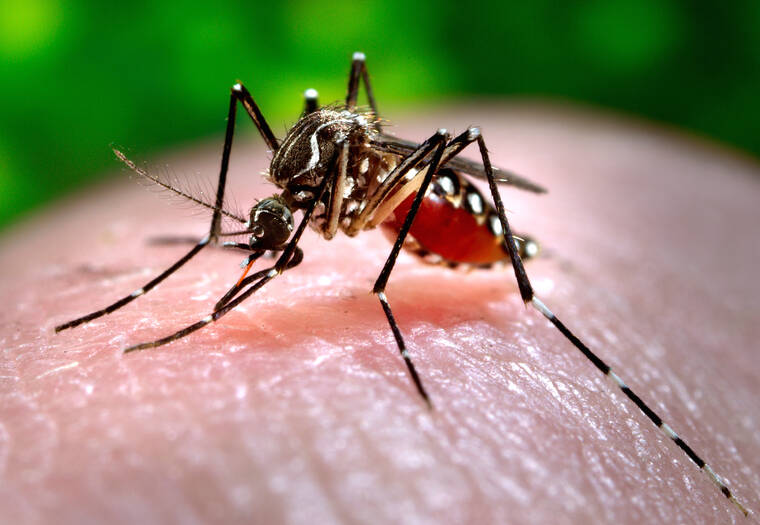Health department reports travel-related dengue case on Oahu

CENTERS FOR DISEASE CONTROL
A female Aedes aegypti mosquito is seen in the process of acquiring a blood meal from her human host at the Centers for Disease Control. A third confirmed case of travel-related dengue has been reported in Hawaii this year, according to the state Health Department.
A third confirmed case of travel-related dengue Opens in a new tab has been reported in Hawaii this year, according to the state Health Department.
The department says these three cases, as well as several others from last year, were in individuals with recent travel to regions where dengue is known to be spread. The new case was reported on Oahu.
The first case this year was reported on Oahu on Jan. 31, followed by another one on Maui on Feb. 9.
While Hawaii is home to the type of mosquitoes that can carry dengue, DOH said the disease is not established or endemic in the state, and cases are currently only seen in travelers.
But dengue outbreaks do occur in many parts of the world including Central and South America; Asia, including the Philippines; the Middle East; Africa; some Pacific Islands, including the U.S. territories of American Samoa, the Federated States of Micronesia, Marshall Islands and Palau; and in the Caribbean, including Puerto Rico.
Anyone who travels to an area with dengue is at risk for infection, the DOH said. Some countries are reporting increased numbers of cases, so four to six weeks before travel, it is important to review country-specific guidance on dengue risk and prevention measures.
Don't miss out on what's happening!
Stay in touch with breaking news, as it happens, conveniently in your email inbox. It's FREE!
Symptoms of dengue include the sudden onset of fever, nausea, vomiting, rash and body aches, which typically last two to seven days. Although life-threatening illnesses can occur, most people recover after about a week.
Travelers returning from an area with a risk of dengue should take steps to prevent mosquito bites for three weeks. If symptoms of dengue develop within two weeks upon return, travelers should seek medical evaluation.
The DOH Disease Outbreak Control Division website Opens in a new taboffers more information about mosquito-borne diseases.





